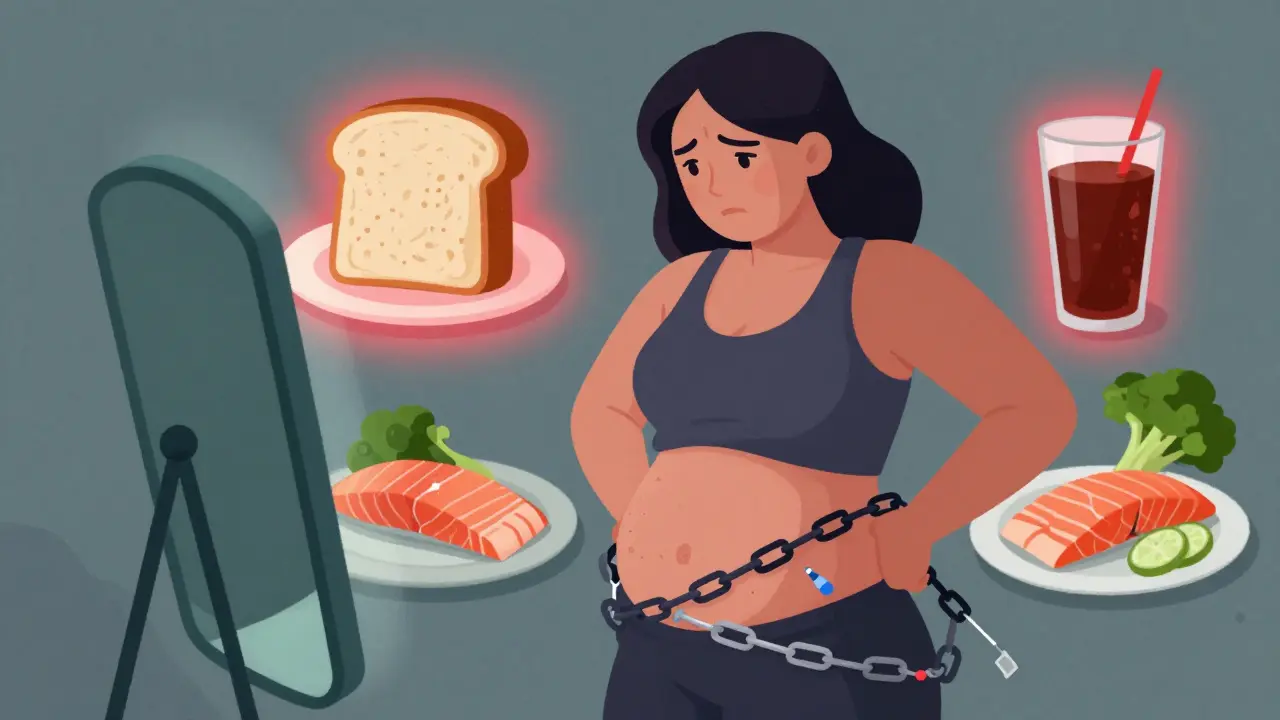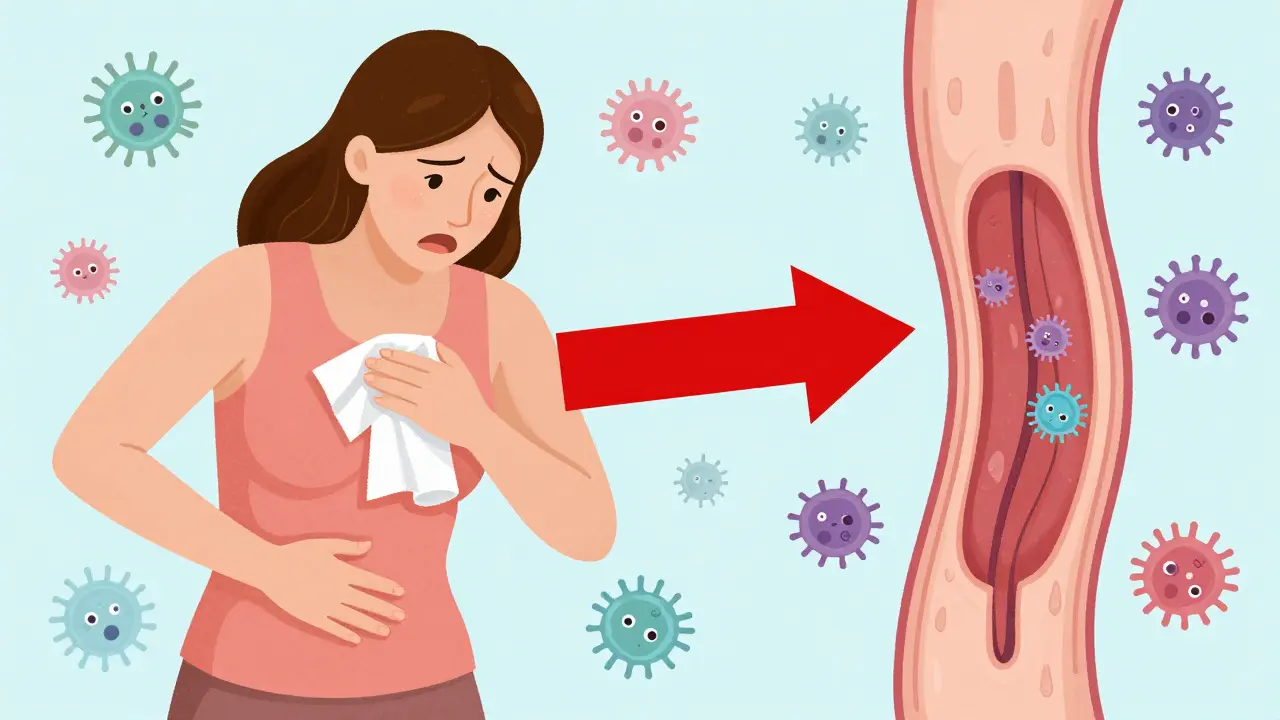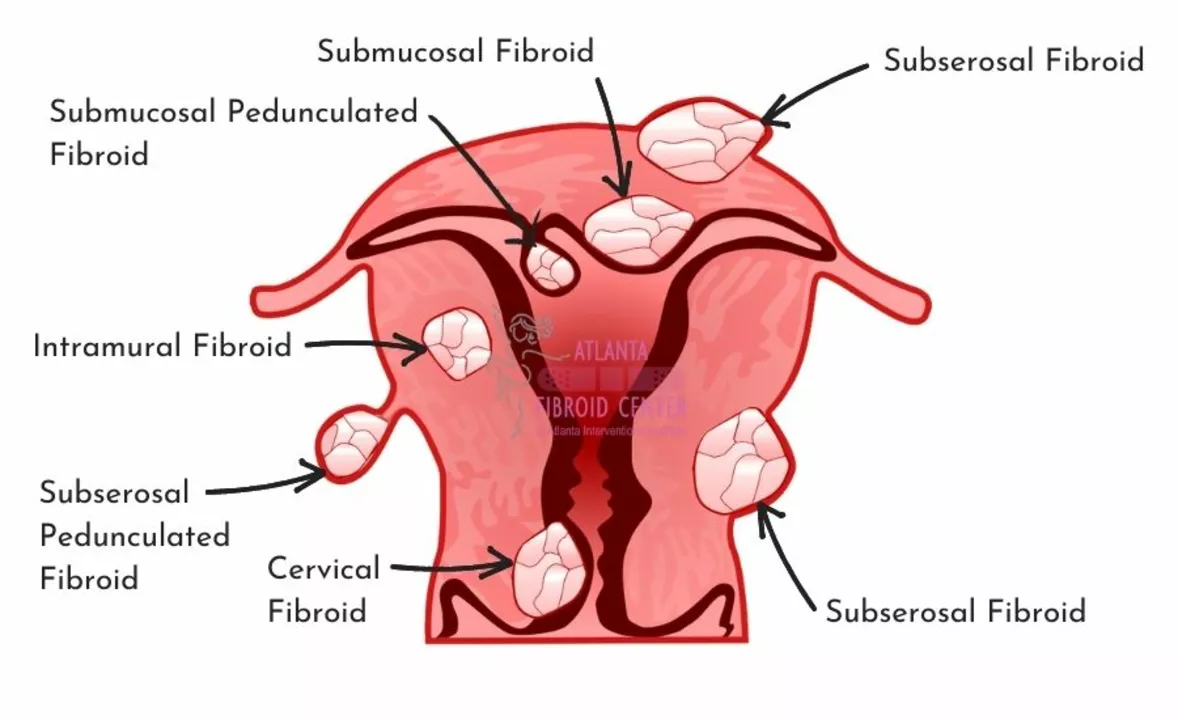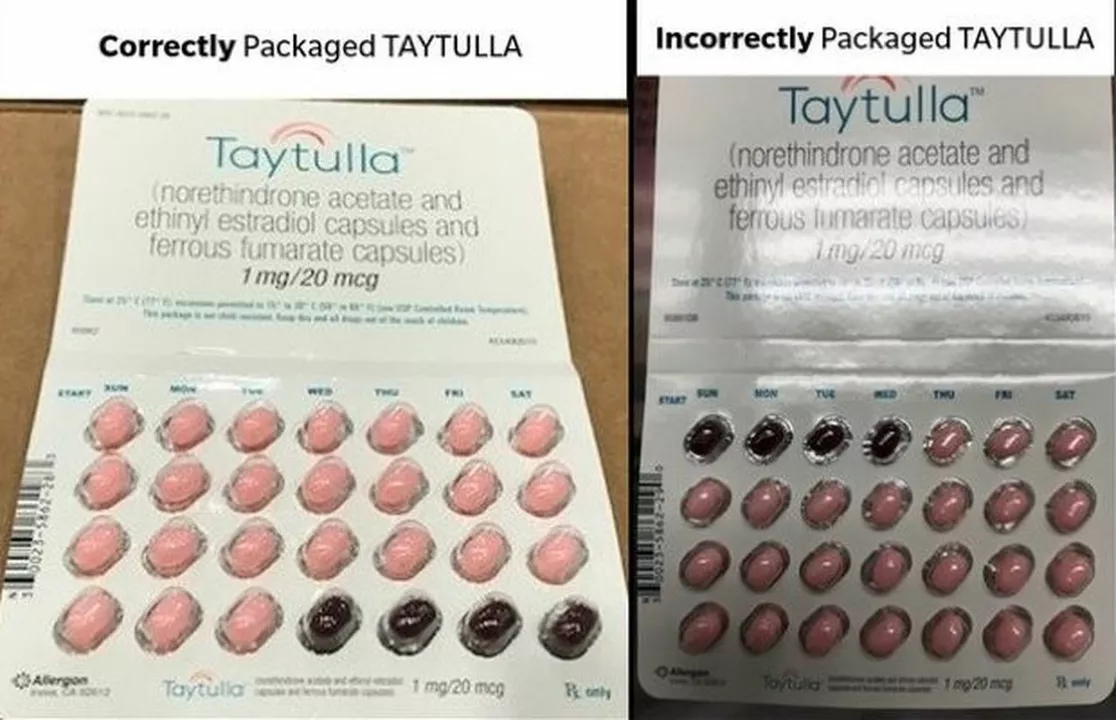Women's Health: Practical Advice on Periods, Birth Control and Pregnancy
Having clear, simple guidance helps when your body throws surprises. On this page you'll find practical tips and pointers on menstrual changes, unusual bleeding, birth control choices, and medications during pregnancy.
Everyday factors that change your cycle
Chemicals in plastics, some beauty products, and pesticides can act like hormones and disturb ovulation or menstruation. That can mean irregular periods or trouble conceiving. To cut risk, swap plastic food containers for glass, skip fragranced cosmetics when possible, wash produce well, and choose organic for produce you eat often. Small changes add up and can reduce your overall hormone exposure.
If you already have irregular cycles, track them for three months. Note flow, pain, and missed periods. That record helps your clinician spot patterns faster and choose the right tests or treatments.
Spotting abnormal bleeding and safer medication choices
Thickening of the uterine lining, called endometrial hyperplasia, often shows up as heavy or prolonged bleeding. Don't ignore spotting between periods or very heavy flow. Your doctor may suggest an ultrasound, biopsy, or hormone therapy depending on the cause. Early treatment often prevents more serious problems.
For birth control, norethindrone acetate is a progestin-only option that works well for people who can't take estrogen. It avoids estrogen-related side effects but needs strict daily timing and may cause irregular bleeding. Long-acting methods like IUDs or implants reduce daily hassle and often give more steady bleeding patterns. Talk through your lifestyle, medical history, and future pregnancy plans when picking a method.
Certain heart drugs need careful thought during pregnancy. Atenolol, for example, can raise concerns about fetal growth when used in pregnancy. If you take blood pressure meds and become pregnant or plan to, discuss safe alternatives and close monitoring with your provider. Balancing maternal health and fetal safety is the main goal.
If heavy or prolonged bleeding causes fatigue, check your iron. Low iron is common after long bleeding and can make you tired, dizzy, and short of breath. Ask your doctor for a simple blood test (CBC and ferritin). Iron supplements can help, but choose a form you tolerate. Also ask about non-hormonal options for pain and bleeding control if hormones aren't right for you.
Use a short questions list at appointments: 'What could be causing this?', 'Do I need tests?', 'Are there meds that are safe if I want to get pregnant?', and 'What side effects should I watch for?'. Bring a medication list and a photo of bleeding days on your phone. Small prep saves time and helps you get the right care faster.
If pain or bleeding suddenly worsens, go to emergency care or call your provider right away.

Benzodiazepines and Birth Defect Risks: What Pregnant Women Need to Know
Benzodiazepines like alprazolam and lorazepam may increase risks of birth defects, miscarriage, and preterm birth during pregnancy. Learn what the latest research says and how to make safer choices.
view more
PCOS and Weight: How Insulin Resistance Drives Fat Gain and What to Eat
PCOS makes weight loss harder due to insulin resistance. Learn how diet, timing, and movement can break the cycle of fat storage, cravings, and hormonal imbalance-without extreme diets.
view more
Urinary Tract Infections: What Causes Them, Which Antibiotics Work, and How to Prevent Them
Learn what causes urinary tract infections, which antibiotics actually work, and proven ways to prevent them from coming back - backed by the latest medical research.
view more
The impact of environmental toxins on the regulation of ovulation and menstruation
In today's blog post, we'll be discussing the impact of environmental toxins on the regulation of ovulation and menstruation. It's alarming to see how these toxins can disrupt our hormonal balance, leading to irregular periods and even fertility issues. Chemicals found in everyday items, such as plastic and beauty products, can mimic estrogen and interfere with our natural hormone production. Furthermore, exposure to heavy metals and pesticides has been linked to hormonal imbalances and difficulties in conceiving. It's essential for us to be aware of these environmental factors and take steps to reduce our exposure to protect our reproductive health.
view more
How Overgrowth in the Lining of the Uterus Can Lead to Abnormal Bleeding
As a blogger, I've recently been researching how overgrowth in the lining of the uterus can lead to abnormal bleeding. I discovered that this overgrowth, known as endometrial hyperplasia, can cause the uterine lining to become too thick, resulting in heavy or prolonged periods. Additionally, hormonal imbalances, such as elevated levels of estrogen without enough progesterone, can contribute to this condition. It's important to consult with a healthcare professional if you're experiencing abnormal bleeding, as it could be a sign of an underlying issue. Early detection and treatment can help prevent more severe complications, such as infertility or even cancer.
view more
Norethindrone Acetate vs. Other Birth Control Options: Pros and Cons
In my latest blog post, I compared Norethindrone Acetate to other birth control options, discussing the pros and cons of each. Norethindrone Acetate, a progestin-only pill, is a great option for those who can't take estrogen, but it may be less effective than combined hormonal contraceptives. On the other hand, options like the IUD, implant, and patch can offer longer-lasting protection and fewer daily hassles. Ultimately, it's essential to weigh the benefits and drawbacks of each method to determine which one is right for you. Remember, always consult your healthcare provider for personalized advice on birth control options.
view moreAtenolol and pregnancy: Understanding the potential risks and benefits
In today's blog post, I want to discuss an important topic concerning Atenolol and pregnancy. Atenolol is a widely prescribed medication for managing high blood pressure and other heart-related issues. However, its use during pregnancy can pose potential risks to both the mother and the unborn child. It is crucial to weigh these risks against the benefits of the drug, and consult with a healthcare professional before making any decisions. By understanding the potential risks and benefits, we can make informed choices for the well-being of both mother and baby.
view more




